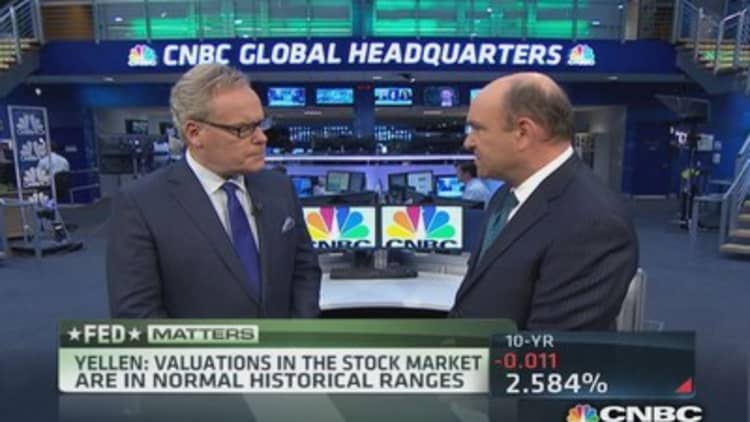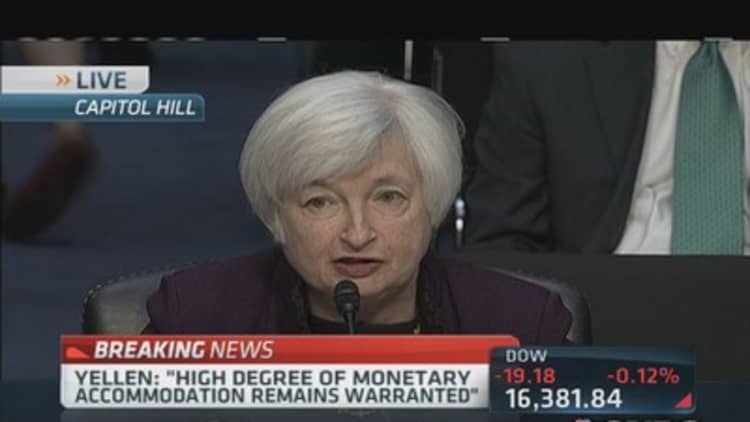
The economy is "on track for solid growth this quarter," Federal Reserve Chair Janet Yellen said on Wednesday, but warned that a deterioration in housing or financial markets could alter that scenario.
After recent weakness that was mostly weather-related, Yellen said many recent indicators suggest a rebound in spending and production. However, the Fed chief told a joint Congressional committee that housing remains a risk to the recovery, even as the Fed expects that sector to pick up eventually.
The newly-appointed top central banker walked a fine line between preparing markets for normalizing monetary policy from its crisis era levels, and assuring the public that the Fed would continue to safeguard a still fragile recovery. A brutally cold winter triggered a run of weak activity that caused economic growth to flatline in the first three months of the year.
"As long as we continue to see improvement in the labor market and we believe the outlook is for continued progress, and as long as we continue to believe and see evidence that inflation will move back up over time to our 2 percent longer-run objective, we anticipate continuing to reduce the pace of our asset purchases in measured steps,'' Yellen told lawmakers.
Major stock benchmarks were mixed on her testimony. In late morning trade, the rallied by about 100 points, but the tech-heavy slumped by more than 25 points. The S&P 500 Index clung to modest gains.
Read MoreThe number that's hypnotized stocks
As part of its effort to taper its bond purchases, the Fed will gradually stop reinvesting proceeds on the maturing bonds on its portfolio.

"The (Fed Open Market) Committee anticipates that our balance sheet over time will move down to substantially lower levels than it is now," Yellen said. "Whether or not it will ultimately return to pre-crisis levels...or remain somewhat larger is something that we will determine as we gain experience with exit.''
Economists now broadly expect the economy to have contracted in the first quarter, though they also project a strong rebound in the current quarter. (For the latest projections click here).
Read MoreEconomists climb on board the 4 percent bandwagon
At the same time, Yellen cautioned that housing activity has remained disappointing and that the labor market is still "far from satisfactory." With many people out of work—the April nonfarm payroll report showed that more than 800,000 people disappeared from the workforce, sending the labor market participation rate lodged at its lowest level in 35 years — Yellen balanced her remarks to show the Fed would remain in accomodative mode.
A "high degree of monetary accommodation remains warranted," Yellen said, adding that current interest rate targets would remain low for a "considerable time." She said that the decline in labor participation rate was a reflection of a still moribund job market.
Despite isolated patches of weak data, analysts believe the Fed will continue to wind down its massive bond purchases, and that monetary policy will gradually grow more restrictive.
"Yellen stuck to the script," noted Paul Ashworth, chief U.S. economist at Capital Economics. Tapering of monetary policy will continue, "with the purchases stopping completely in the final quarter of this year," he said in a research note.
"The first rate hike won't come until a considerable time after that, i.e. mid-2015. And even when the Fed does begin to hike rates, the tightening will be unusually gradual," Ashworth wrote.
(How are markets reacting to Yellen's testimony? for the latest)
--Reuters contributed to this article.


